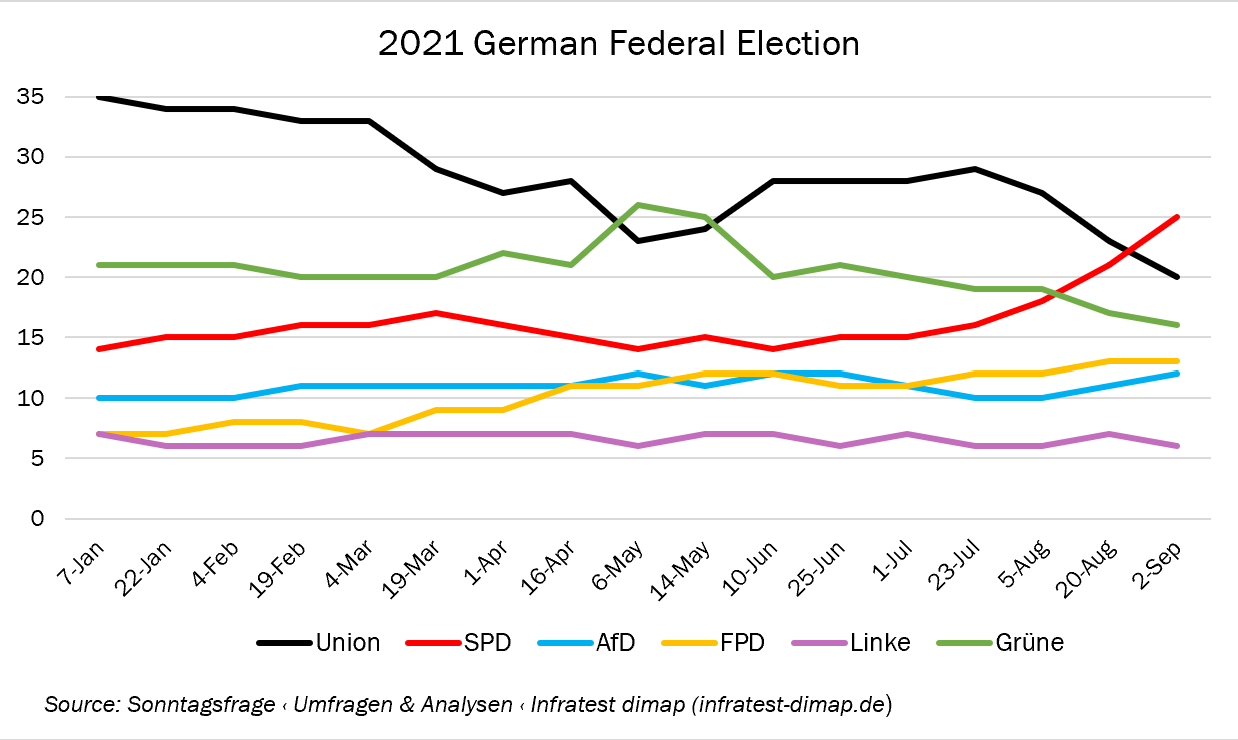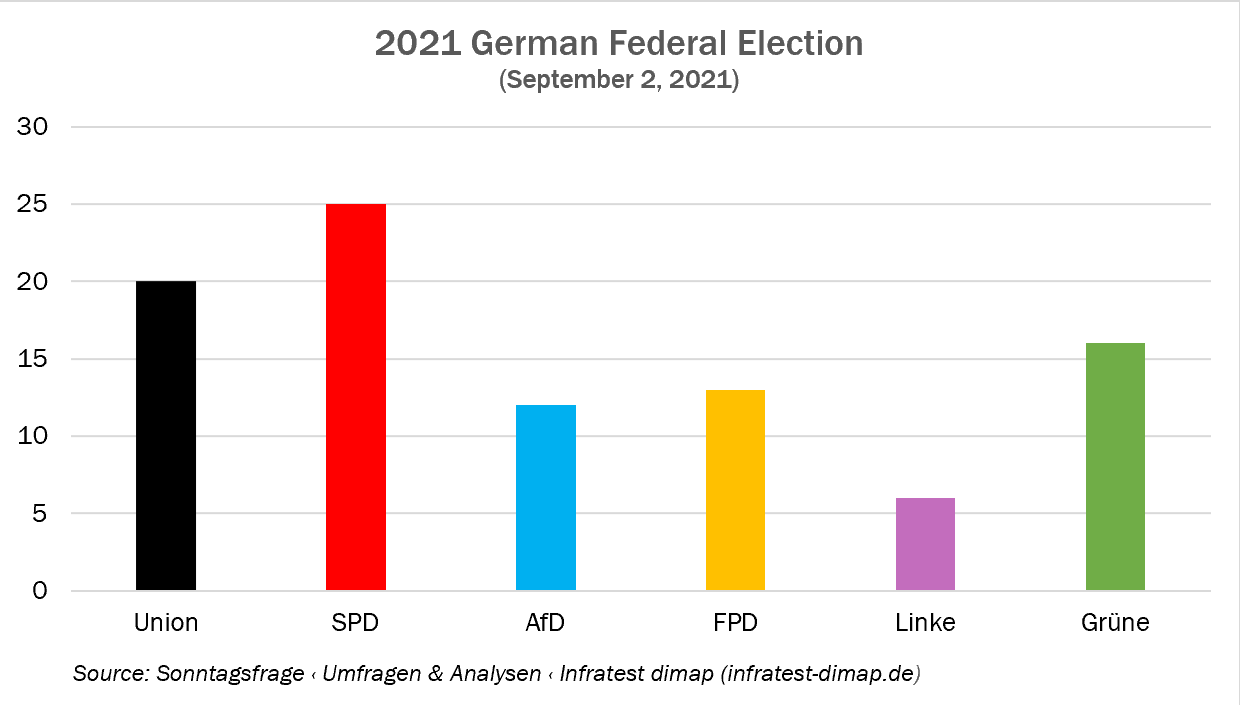|
Ocnus.Net Analyses With only a few weeks until the Germany’s elections on September 26, the outlook on who will succeed Angela Merkel as chancellor after her 16-year run has proven more volatile than many expected. After an initial burst of attention and positive media coverage, the Green party’s candidate, Annalena Baerbock, has seen a drop in her personal polling fortunes and her party, polling significantly better compared to recent elections and at historically high levels, has fallen back behind the Social Democrats (SPD) and Christian Democrats (CDU) in the forecasts. Armin Laschet, who until well into summer was refered to without much doubt in many media reports as “Merkel’s likely successor” has fared even worse in the polls. His personal favorability numbers have taken a steep dive, following a series of blunders and campaign mishaps, and they have dragged the CDU down to unprecedentedly low levels in current polling (from 33 percent in early March to 20 percent on September 2 in the well-known “Sunday Question” poll). Meanwhile, the Social Democrats have lately seen their poll numbers climbing steeply, as respondents have rated their candidate, Vice Chancellor and Finance Minister Olaf Scholz, as the most steady and trustworthy. While the SPD’s numbers are still far below their scores from before the Merkel era, currently polling around 25 percent it is poised to become the largest party in the next Bundestag and could make a justified claim to lead the new government.  However, the new political landscape in Germany, which has seen the number of parties in the Bundestag grow to six (counting the CDU and its Bavarian sister party the CSU as one), makes the process of finding a governing coalition more difficult and therefore increasingly challenging to predict. Two of the six parties likely to be represented in the next Bundestag, Die Linke (the Left Party) and the right-wing Alternative für Deutschland (AfD) are widely viewed as not acceptable governing partners. If one therefore imagines the vote share as a pie chart, two small-to-medium sized pieces of the pie are missing from the coalition arithmetic from the outset, likely leaving no clear ideological majority on the center-left or center-right. This makes it very likely that, unless the current grand coalition CDU-SPD is renewed, the next government will need to consist of three parties to be sure of a majority in the Bundestag, something unprecedented at the federal level. Given the need for three parties, one of the slightly smaller parties, likely the center-left Greens or the more center-right Free Democrats (FDP) will have to “bridge” the political center and join a coalition led by the “other side.” Under these circumstances, coalition talks are likely to prove challenging and will take much longer than has historically been the case. What about Afghanistan?As in most other Western democracies, foreign policy is not playing a main role in the campaign, with voters most concerned with domestic economic and social policies while climate change is also often mentioned in polling as an important factor in the election. And, of course, the campaign still takes place in light of the ongoing coronavirus pandemic. The chaotic withdrawal from Afghanistan received a lot of attention in Germany in August, but this has not broken through as a major partisan issue in the campaign and has almost disappeared from it already. Given that two of the three parties that are likely to lead the country next have been in government for most of the past two decades (the SPD for 19 of the past 23 years and the CDU continuously since 2005), most observers expect an emphasis on stability and little change in foreign policy terms. Outlook on Foreign Policy and Transatlantic RelationsBoth Olaf Scholz and Armin Laschet have expressed positions in line with established German foreign policy, emphasizing the importance of the European Union, multilateralism, and transatlantic relations, as well as the need for dialogue and cooperation where possible with authoritarian countries such as China and Russia. On this last point, Annalena Baerbock and the Greens have taken a more pronounced position, arguing, for example, against the controversial Nord Stream 2 pipeline and also for a more cautious and clear-eyed engagement with China. All three parties have emphasized the importance of the partnership with the United States for Germany. Still, the experience of the presidency of Donald Trump has left a mark in Berlin policy circles as Chancellor Merkel’s 2017 assessment that “to some extent” Germany can no longer rely on the United States demonstrated. While President Joe Biden’s election and promise to repair U.S. alliances was certainly welcomed, Germany—focused inwardly during its election year—has not taken any major initiatives to revive U.S.-German relations since he took office. The chaotic departure from Afghanistan in turn has led to some grumbling in Berlin, while the fact that European governments, including Germany’s, relied heavily on the U.S. military to evacuate their own citizens and partners, served as yet another reminder that much more will need to be done (and spent) should Europe truly want to strengthen its own abilities. 
Source: Ocnus.net 2020 |